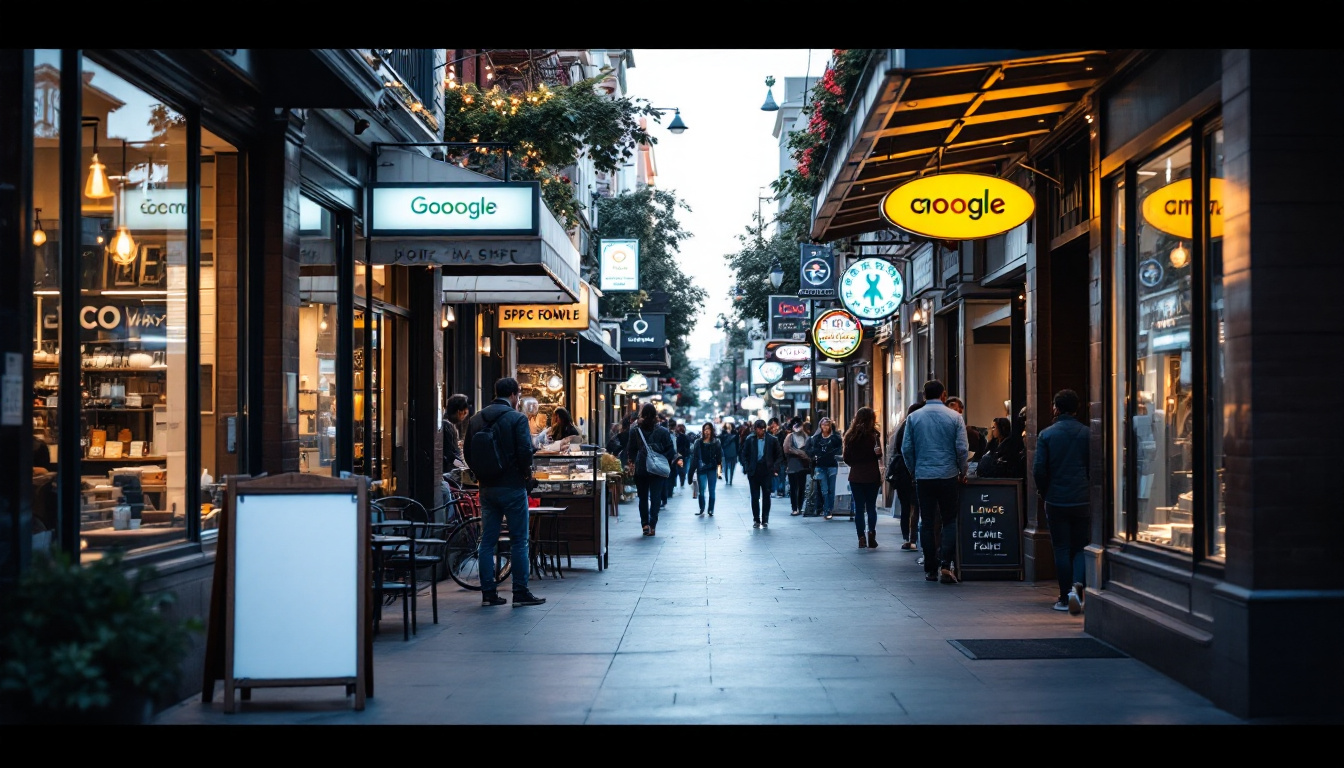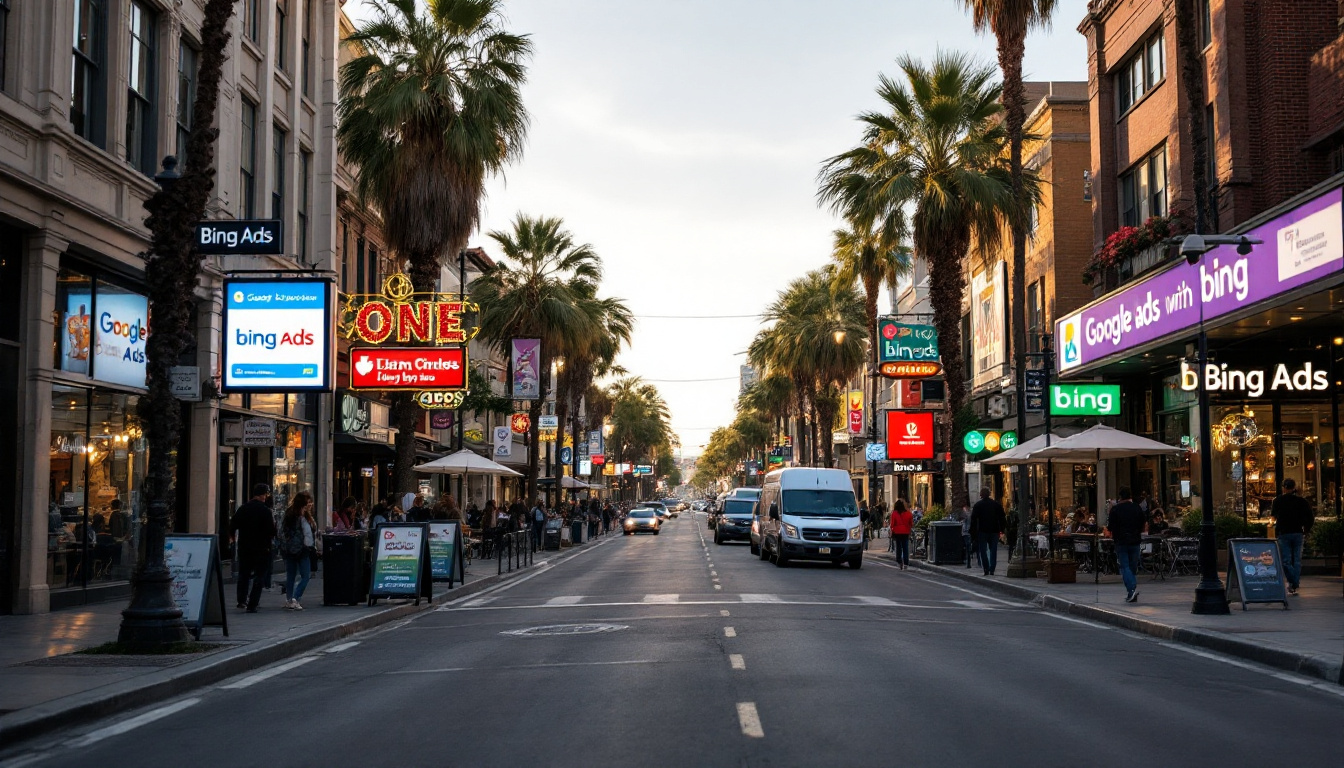Top PPC FAQs Answered for San Jose, CA Businesses

If you're a business in San Jose, CA, looking to enhance your online presence and drive targeted traffic to your website, you've likely encountered the term Pay-Per-Click (PPC) advertising. As a powerful digital marketing strategy, PPC can generate significant returns if utilized effectively. In this article, we will address some of the most frequently asked questions about PPC to help you make informed decisions for your business.
What is PPC and how does it work?
PPC, or Pay-Per-Click, is an online advertising model where advertisers pay a fee each time their ad is clicked. Essentially, it’s a way of buying visits to your site, rather than attempting to “earn” those visits organically. This model enables businesses to reach potential customers actively searching for their products or services.

Here's how it generally works:
- Advertisers create ads and choose keywords relevant to their offerings.
- When users search for those keywords, search engines display the ads, usually at the top or bottom of the search results page.
- Advertisers bid on keywords, determining how much they are willing to pay per click.
- The ad platform uses an auction system, balancing bid amounts with ad quality to determine which ads are displayed.
Due to its structured mechanism, businesses can effectively target their audience, ensuring their ads reach users who are most likely to convert. This targeted approach not only increases the likelihood of generating sales but also enhances brand visibility among a relevant audience, making it a powerful tool in any digital marketing arsenal.
Furthermore, PPC can be tailored to suit various marketing goals, whether it's brand awareness, lead generation, or direct sales. Advertisers can experiment with different ad formats, such as text ads, display ads, and even video ads, to see which resonates best with their target demographic. This flexibility allows for creative experimentation and the ability to pivot strategies based on real-time performance data.
Benefits of PPC
Implementing a PPC strategy offers numerous advantages. First and foremost, it brings immediate traffic to your website. Unlike SEO, which might take time to yield results, PPC can start driving visitors within hours of launching a campaign.
Moreover, PPC is highly measurable. Detailed analytics provide insights into click-through rates, conversion rates, and customer behavior. This data allows businesses to refine their strategies continually, ensuring their advertising spend is optimized for maximum return on investment. Additionally, the ability to track the performance of specific keywords and ads enables advertisers to allocate their budgets more effectively, focusing on high-performing areas while adjusting or eliminating underperforming ones.
Another significant benefit of PPC is its scalability. Businesses can start with a modest budget and gradually increase their spending as they see positive results. This makes PPC accessible for companies of all sizes, from startups to large enterprises. Furthermore, seasonal campaigns can be easily implemented, allowing businesses to capitalize on peak shopping periods or special promotions without the long-term commitment associated with other forms of advertising.
Why is PPC important for local businesses?
PPC is particularly crucial for local businesses in San Jose as it helps them reach a highly targeted audience. In an era where consumers often search for services near them, local PPC campaigns enable businesses to position themselves prominently in search results.

Statistics indicate that a significant percentage of users prefer to visit local businesses after conducting an online search. A well-structured PPC campaign can leverage this behavior by displaying ads to users who are searching for specific local offerings. Thus, it enhances visibility, engagement, and ultimately boosts foot traffic.
Geo-targeting in PPC
One remarkable feature of PPC is geo-targeting, which allows businesses to focus their advertising efforts on specific areas. This means that San Jose-based businesses can create ads that are only shown to users in or around the city. Effective geo-targeting can save costs and enhance the effectiveness of ad campaigns by ensuring that the ads reach local consumers interested in their products or services.
Moreover, geo-targeting can be fine-tuned to target not just the city as a whole, but also specific neighborhoods or even streets where potential customers are most likely to be found. For instance, a coffee shop in downtown San Jose can tailor its PPC ads to reach people within a one-mile radius, ensuring that they attract foot traffic from nearby office workers and residents. This hyper-local approach not only maximizes the return on investment but also fosters a sense of community engagement, as consumers often appreciate supporting businesses that are part of their local landscape.
Additionally, local PPC campaigns can be complemented by utilizing location extensions, which allow businesses to display their address, phone number, and a map to their location directly in the ad. This feature not only provides potential customers with essential information but also encourages them to visit the business in person, thereby bridging the gap between online engagement and real-world transactions. By combining geo-targeting with location extensions, local businesses can create a powerful marketing strategy that effectively drives both online and offline sales.
How to select the best PPC platform?
Selecting the right PPC platform is crucial for the success of your online advertising efforts. Several platforms are available, including Google Ads, Bing Ads, and social media advertising on platforms like Facebook and Instagram. Here are some key factors to consider when choosing:
- Business objectives: Identify your goals. Are you aiming for brand awareness, lead generation, or direct sales? Different platforms can be better suited for different objectives.
- Target audience: Understand where your audience spends most of their time online. If your target customers frequently use social media, consider using those platforms for your PPC campaigns.
- Budget: Evaluate your advertising budget. Some platforms may require a higher minimum spend than others.
- ROI tracking: Choose a platform that provides robust analytics to monitor your campaign's performance effectively.
Taking these factors into account can help you make an informed decision about which platform aligns best with your business needs.
Additionally, consider the unique features each platform offers. For instance, Google Ads provides extensive keyword targeting options, allowing you to reach users actively searching for your products or services. On the other hand, platforms like Facebook and Instagram excel in visual storytelling, enabling you to create engaging ads that resonate with users through images and videos. This can be particularly beneficial for brands in industries such as fashion, beauty, or food, where visuals play a significant role in consumer decision-making.
Another important aspect to explore is the level of competition on each platform. Some niches may be saturated on Google Ads, leading to higher costs per click (CPC), while other platforms may offer lower competition and more affordable advertising options. Conducting thorough market research can help you identify where your competitors are advertising and whether there are untapped opportunities on less crowded platforms. This strategic approach can maximize your advertising budget and enhance your overall campaign effectiveness.
What are the costs associated with PPC?
The costs associated with PPC can vary widely based on several factors, including industry competitiveness, keyword selection, and bid strategy. Generally, businesses are billed each time a user clicks their ad, which is why it’s essential to manage your PPC budget carefully.
Common cost-related factors include:
- Cost-per-click (CPC): This is the amount you pay for each click on your ad. CPC can range from a few cents to several dollars depending on the competition for keywords.
- Daily or monthly budgets: Setting a budget helps control spending. Once your budget is exhausted, your ads will stop appearing.
- Ad quality and relevance: Well-crafted ads with high click-through rates can lower your CPC, increasing the overall efficiency of your ad spend.
Understanding these cost dynamics can help businesses allocate their advertising budgets more effectively. Additionally, the choice of platforms can also influence costs significantly. For instance, Google Ads and Facebook Ads have different pricing structures and audience targeting capabilities, which can lead to varying results in terms of return on investment. Businesses must assess which platform aligns best with their target audience and marketing goals.
Moreover, seasonal trends and market fluctuations can also affect PPC costs. During peak shopping seasons, such as the holidays, competition for keywords can intensify, leading to higher CPCs. Businesses that anticipate these trends can adjust their bidding strategies and budgets accordingly, ensuring they remain competitive while maximizing their advertising effectiveness. Regularly analyzing performance metrics and adjusting campaigns can further optimize spend and drive better results.
How to measure the success of your PPC campaigns?
Measuring the success of your PPC campaigns is critical for evaluating their effectiveness and optimizing your strategies. Various metrics can help assess performance, including:
- Click-through rate (CTR): This metric measures the percentage of people who clicked on your ad after seeing it, indicating how relevant and enticing your ads are.
- Conversion rate: This shows the percentage of clicks that resulted in a desired outcome, such as a sale or sign-up, which is vital for understanding the effectiveness of your ad content.
- Cost per acquisition (CPA): This reflects the total cost of acquiring a customer through your PPC efforts, allowing for better budget management.
- Return on ad spend (ROAS): A crucial metric that calculates the revenue generated for every dollar spent on PPC advertising.
By regularly monitoring these metrics, businesses can make data-driven decisions, tweak their campaigns for better outcomes, and ultimately enhance their PPC effectiveness.
PPC advertising offers a plethora of opportunities for businesses in San Jose, CA, to grow and thrive in the competitive online landscape. By understanding the intricacies of PPC, local companies can harness its full potential and drive meaningful results.

As a Google Ads expert, I bring proven expertise in optimizing advertising campaigns to maximize ROI.
I specialize in sharing advanced strategies and targeted tips to refine Google Ads campaign management.
Committed to staying ahead of the latest trends and algorithms, I ensure that my clients receive cutting-edge solutions.
My passion for digital marketing and my ability to interpret data for strategic insights enable me to offer high-level consulting that aims to exceed expectations.









